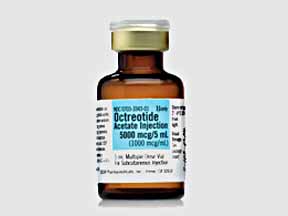
Octreotide Coupons & Savings Card – Discount Prices from $59.34
Generic for: Sandostatin, Sandostatin lar depot, Bynfezia pen
My prescription
Edit
5ML of 1000MCG/ML, Octreotide (1 Vial)
Select pharmacy

CVS
$297.10
COUPON PRICE
Albertsons
$59.34
COUPON PRICE
Walgreens
$91.81
COUPON PRICE
Walmart
$262.70
COUPON PRICEOctreotide savings card
Show this card to your pharmacist
Albertsons
$59.34
BIN
ID
PCN
GRP
019876
LHBC39B398
CHIPPO
LHX
Powered by
More prescriptions for acromegaly
More prescriptions for acromegaly
Price history for Sandostatin (brand) & Octreotide (generic)
1 Vial, 5ML of 1000MCG/ML
Average retail price for Sandostatin
Average retail price for Octreotide
Average SaveHealth price for Octreotide
Our price history data is based on aggregated prescription data collected from participating pharmacies in America. Our prescription data updates daily to reflect the latest price changes. If you notice a missing data point, it means there wasn't sufficient data available to generate a monetary value for that date.
We analyzed Octreotide prices for (5ML of 1000MCG/ML, 1 Vial) over the last 12 months. The average retail price was $340.01, while the average price using the SaveHealth discount card was $142.35. That's a savings of approximately 58.13% when using our Octreotide coupon.
Compared to the generic version, Sandostatin had an average price of $16.90 over the same time period. With the SaveHealth savings card, Octreotide is -742.31% cheaper on average than Sandostatin.
*Retail prices are based on pharmacy claims data, and may not be accurate when we don't have enough claims.
Octreotide dosage forms
Dosage Quantity Price from Per unit 1ML of 50MCG/ML 1 Vial $8.47 $8.47 1ML of 50MCG/ML 2 Vials $9.44 $4.72 1ML of 50MCG/ML 3 Vials $10.42 $3.47 1ML of 100MCG/ML 1 Vial $8.90 $8.90 1ML of 100MCG/ML 2 Vials $10.31 $5.16 1ML of 100MCG/ML 3 Vials $11.71 $3.90 1ML of 500MCG/ML 1 Vial $15.06 $15.06 1ML of 500MCG/ML 2 Vials $22.62 $11.31 1ML of 500MCG/ML 3 Vials $30.18 $10.06 5ML of 1000MCG/ML 1 Vial $59.34 $59.34
| Dosage | Quantity | Price from | Per unit |
|---|---|---|---|
| 1ML of 50MCG/ML | 1 Vial | $8.47 | $8.47 |
| 1ML of 50MCG/ML | 2 Vials | $9.44 | $4.72 |
| 1ML of 50MCG/ML | 3 Vials | $10.42 | $3.47 |
| 1ML of 100MCG/ML | 1 Vial | $8.90 | $8.90 |
| 1ML of 100MCG/ML | 2 Vials | $10.31 | $5.16 |
| 1ML of 100MCG/ML | 3 Vials | $11.71 | $3.90 |
| 1ML of 500MCG/ML | 1 Vial | $15.06 | $15.06 |
| 1ML of 500MCG/ML | 2 Vials | $22.62 | $11.31 |
| 1ML of 500MCG/ML | 3 Vials | $30.18 | $10.06 |
| 5ML of 1000MCG/ML | 1 Vial | $59.34 | $59.34 |
| 5ML of 200MCG/ML | 1 Vial | $38.10 | $38.10 |
| 5ML of 200MCG/ML | 2 Vials | $65.84 | $32.92 |
| 5ML of 200MCG/ML | 3 Vials | $91.26 | $30.42 |
| 5ML of 1000MCG/ML | 2 Vials | $111.18 | $55.59 |
| 5ML of 1000MCG/ML | 3 Vials | $163.02 | $54.34 |
